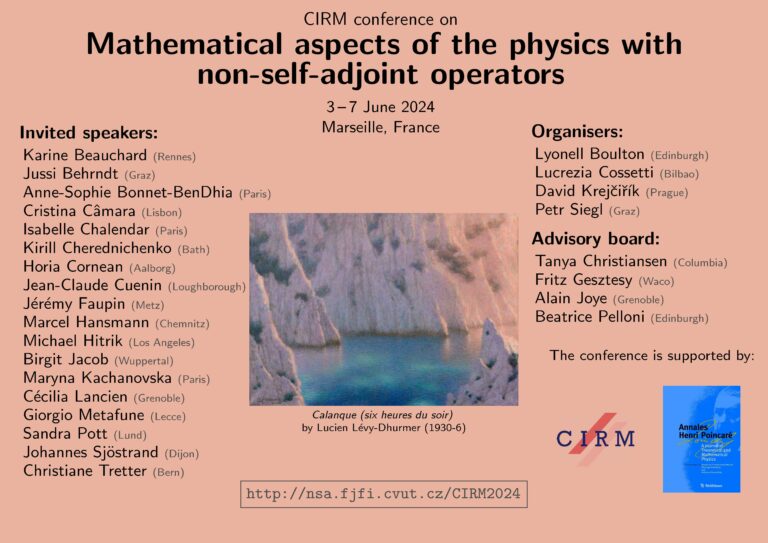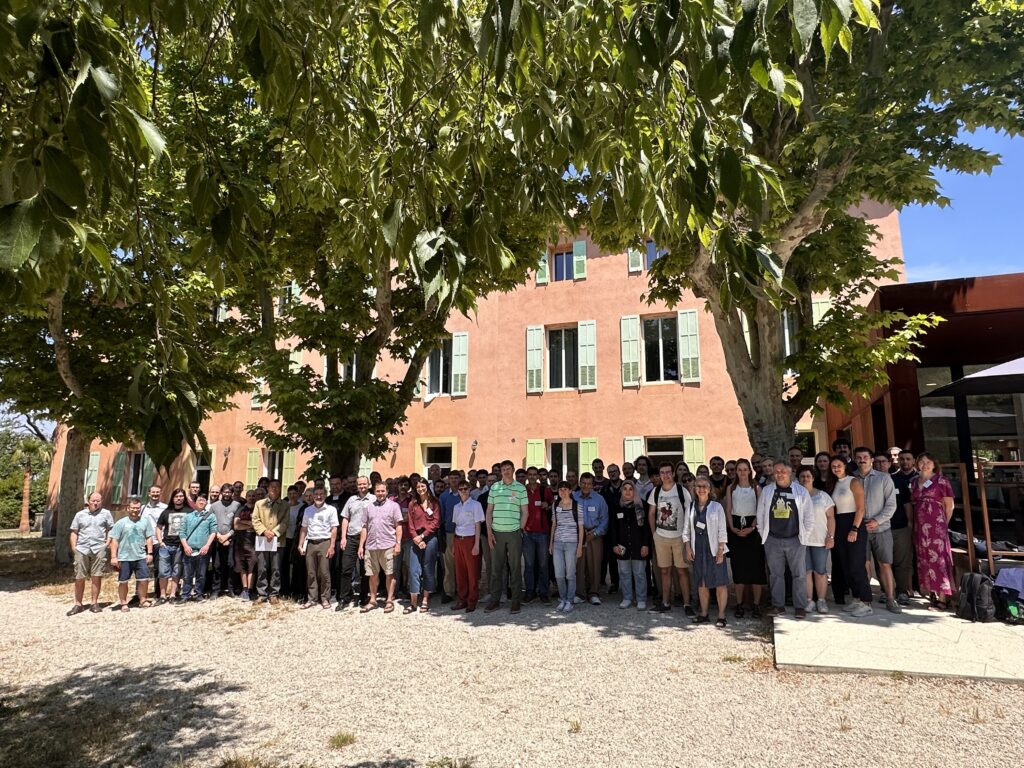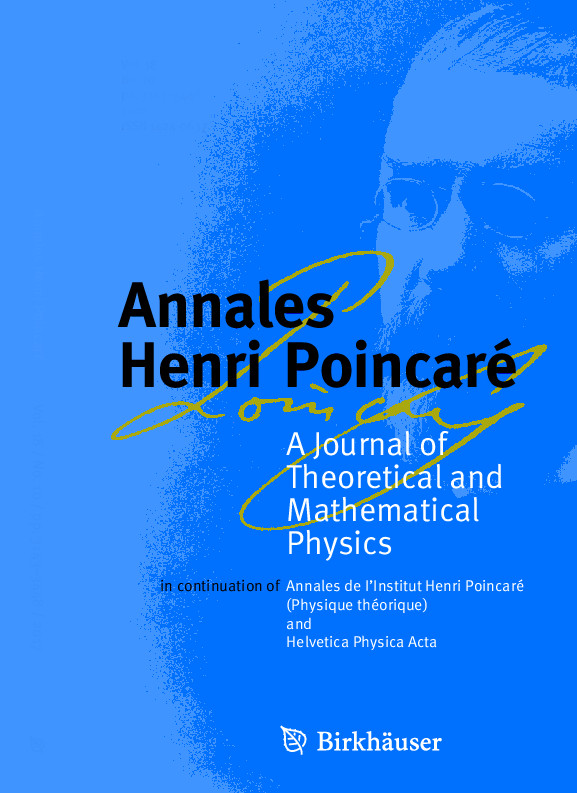CONFERENCE
Mathematical aspects of the physics with non-self-adjoint operators
Les aspects mathématiques de la physique avec les opérateurs non-auto-adjoints
3 – 7 June, 2024
Scientific Committee
Comité scientifique
Tanya Christiansen (University of Missouri, Columbia)
Fritz Gesztesy (Baylor University, Waco)
Alain Joye (Université Grenoble Alpes)
Beatrice Pelloni (Heriot-Watt University, Edinburgh)
Organizing Committee
Comité d’organisation
Lyonell Boulton (Heriot-Watt University, Edinburgh)
Lucrezia Cossetti (University of the Basque Country, Bilbao)
David Krejčiřík (Czech Technical University of Prague)
Petr Siegl (Graz University of Technology)
contact the organizers: nsa@fjfi.cvut.cz
The conference is intended as a follow-up of a highly successful series of meetings organised in various places in Europe and North America during the last dozen years, including two CIRM conferences in 2017 and 2021. The goal is to facilitate interdisciplinary collaborations across the mathematical analysis and mathematical physics communities, with a central role being played by the theory of non-self adjoint operators. From the point of view of applications, modern physical subjects, such as advanced structures in condensed matter physics and optics, unconventional representations of observables in quantum mechanics, and non-linear phenomena in hydrodynamics are covered. High impact mid-term aspirations include the development of rigorous tools allowing understanding of complicated physical phenomena including cloaking, turbulence and explosive behaviour. On the mathematical side, invited participants are experts in mathematical physics, microlocal, semiclassical, functional and harmonic analysis, as well as dynamical systems and partial differential equations.
La conférence est conçue comme prochaine édition d’une série de réunions très réussies organisées en divers lieux d’Europe et d’Amérique du Nord au cours des douze dernières années, dont deux conférences CIRM en 2017 et 2021. L’objectif est de faciliter les collaborations interdisciplinaires entre les communautés de l’analyse mathématique et de la physique mathématique, autour du rôle central joué par la théorie des opérateurs non-auto-adjoints. Du point de vue des applications, les sujets de physiques modernes, tels que les structures avancées en physique de la matière condensée et en optique, les représentations non conventionnelles des observables en mécanique quantique, et les phénomènes non linéaires en hydrodynamique sont couverts. Les aspirations à moyen terme et fort impact comprennent le développement d’outils rigoureux permettant la compréhension de phénomènes physiques complexes tels le camouflage, la turbulence et le comportement explosif. Du côté mathématique, les participants invités sont des experts en physique mathématique, en analyse microlocale, semi-classique, fonctionnelle et harmonique, ainsi qu’en systèmes dynamiques et en équations aux dérivées partielles.
SPEAKERS
Antonio Arnal (Graz University of Technology) Energy decay of solutions of the wave equation with unbounded damping at infinity
Laura Baldelli (University of Granada) Curved quantum nonlinear waveguides
Jussi Behrndt (Graz University of Technology) The generalized Birman-Schwinger principle
Anne-Sophie Bonnet-BenDhia (Institut Polytechique de Paris) Spectrum and pseudospectrum of reflectionless frequencies in waveguides
Cristian Cazacu (University of Bucharest) Hardy inequalities for magnetic p-Laplacians
Kirill Cherednichenko (University of Bath) Functional model for generalised resolvents and its application to time-dispersive media
Andrew Comech (Texas A&M University) Virtual levels of linear operators in Banach spaces. Application to Schrödinger operators in 2D
Jean-Claude Cuenin (Loughborough University) Spectral inequalities for Schrödinger operators with complex potentials
Nils Dencker (Lund University) The generic instability of differential operators
Jérémy Faupin (Université de Lorraine) Spectral decomposition of some non-self-adjoint operators
Francesco Ferraresso (University of Sassari) Essential spectrum of dissipative Maxwell systems
Borbala Gerhat (Czech Technical University in Prague) Powers of discrete Laplacians and Hardy-type inequalities
Luka Grubišić (University of Zagreb) Model order reduction of the resolvent using subspace embeddings with random Khatri–Rao products
Michael Hitrik (University of California, Los Angeles) Magic angles and classically forbidden regions for twisted bilayer graphene
Amru Hussein (University of Kaiserslautern-Landau) Non-self-adjoint scattering on graphs
Maryna Kachanovska (Institut Polytechnique de Paris) Limiting absorption principle for a degenerate problem modelling a hybrid resonance in plasma
Perry Kleinhenz (Michigan State University) Stability and optimal backward uniqueness of second order equations with unbounded damping
Cécilia Lancien (CNRS – Université Grenoble Alpes) Spectrum of random quantum channels
Annemarie Luger (Stockholm University) Quasi-Herglotz functions and non-selfadjoint operators
Giorgio Metafune (University of Salento) Lp estimates for degenerate problems in the half-space
Ivica Nakić (University of Zagreb) Spectrum of operators on equilateral metric graphs
Đức Thọ Nguyễn (Czech Technical University in Prague) Dislocated Dirac operator
Juan Manuel Pérez Pardo ( University Carlos III of Madrid) On the stability of non-autonomous Schrödinger equations and appli- cations to Quantum Control
Yehuda Pinchover (Technion – Israel Institute of Technology) The space of Hardy-weights for quasilinear equations: Maz’ya-type charac- terization and sufficient conditions for existence of minimizers
Matias Ruiz (University of Leicester) Spectral analysis of the material-independent modes for the Helmholtz equation
Nico Michele Schiavone (Basque Center for Applied Mathematics) Uniform resolvent estimates, smoothing effects and spectral stability for the Heisenberg sublaplacian
František Štampach (Czech Technical University in Prague) A Borg-Marchenko type theorem for Schrödinger operators with complex potentials
Alim Sukhtayev (Miami University) Spectral decomposition and decay to grossly determined solutions for a simplified BGK model
Tom ter Elst (The University of Auckland) Dynamic boundary conditions for divergence form operators with H¨older coef- ficients
Sergey Tumanov (Moscow State University) On Molchanov’s criterion for the compactness of the resolvent for the non- selfadjoint Sturm–Liouville operator
Carsten Trunk (TU Ilmenau) Essential spectra of Sturm–Liouville operators and their indefinite counterpart
Christiane Tretter (University of Bern) Challenges for non-selfadjoint spectral problems in analysis and computation
Rongwei Yang (University at Albany State University of New York) Pluri-harmonic solutions to the Maxwell’s equations and Yang-Mills equations








